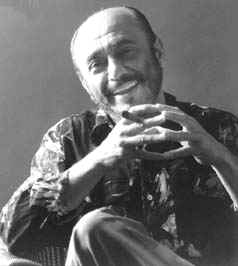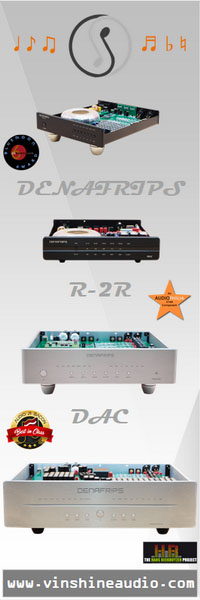Conversations with Eddie Palmieri About a “Masterpiece”
| Conversations with Eddie Palmieri About a “Masterpiece” |
| Hector Rosario |
| 6 October 2000 |
 Eddie Palmieri, jazz pianist extraordinaire, is in my opinion, a living jazz legend. After attending his latest concert, I had the further pleasure of meeting and talking with him about his career and latest CD entitled “Masterpiece.” This CD also features collaboration with the late Tito Puente, recorded just before his sudden death.
Eddie Palmieri, jazz pianist extraordinaire, is in my opinion, a living jazz legend. After attending his latest concert, I had the further pleasure of meeting and talking with him about his career and latest CD entitled “Masterpiece.” This CD also features collaboration with the late Tito Puente, recorded just before his sudden death.
Portable tape recorder in hand I just sat listening as Eddie told his story about his life, love for music, and his latest work…
Tito Puente had been Eddie Palmieri’s idol throughout his lifetime. Born and raised in New York City, while his older brother Charlie, who was Tito Puente’s close friend, also served as his complete inspiration. Palmieri’s musical career began as a singer, his mother would dress him up in army suits and he’d sing military tunes. Ironically, this routine enabled him to win many amateur hour contests. Unfortunately, some time later, he developed whooping cough and lost his ability to sing. Destiny took its course and at the tender age of eight he was playing piano just like his brother.
As years passed he wanted like Tito Puente, to be a Timbales player and eventually did switch over. Palmieri claimed that everyone in those days wanted to be like Tito Puente. In 1949, Charlie Palmieri formed his own band and little brother Eddie wanted to follow in his footsteps. At 13 his mother skillfully got him to give up the Timbales by indicating to Eddie, how beautiful his brother looked when he went to work and didn’t have to carry an instrument. However, Palmieri forced to lug around a heavy case containing his Timbales. She’d remark, “Eddie when will you learn my son?” A young and persistent Palmieri, straining from the sheer weight of the Timbales would only answer back defiantly “I’m learning ma, I’m learning.” Her words eventually got through causing the young Palmieri to sell his Timbales to his Uncle Chino.
Palmieri went back to playing piano and never looked back. Palmieri, working for his uncle Chino’s band and doing a little composing and arranging of his own, refined his skills at Cuban music when he joined the Vicentico Valdez Orchestra. Later becoming a part of the Tito Rodriguez Orchestra from 1958-1960, Palmieri was well on his way. All the top bandleaders of the 50’s recognized his talents making him a highly sought after pianist.
In 1961, Palmieri formed his first band he named La Perfecta. This band was one of the most incredible eight-piece orchestra that ever existed. If you don’t believe it get your hands on some of that music and you will see for yourself. Palmieri would oversee all the arrangements. However, it was the creative genius of Trombonist Barry Rogers, which gave the explosive rhythms its virtuosity. The driving sounds that were created by this band were incomparable. Palmieri would create the structured composition and Barry Rogers would masterfully arrange the brass section by applying two trombones and a trumpet or a flute in the register and that’s what gave the music its uniquely vibrant sound. Palmieri and Rogers unfortunately split after 1968 and didn’t meet to record again until in the fall of 1974. When they did record, again you can hear the chemistry between the two never left in the classic tracks “Puerto Rico” and “Adoracion”. During this time, the unmistakable voice of Ismael Quintana is prevalent in all those recordings. For my money, he was the best vocalist of his time, but never got the recognition he deserved.
The following venture found Palmieri and Rogers doing “Dia Bonito” and because of the departure of Ismael Quintana. Forced to look for a new vocalist, Palmieri, was introduced to16-year-old Puerto Rican native guitarist and singer Lalo Rodriguez, who was immediately featured as lead vocalist on the album “The Sun of Latin Music.” This was breakthrough recording that went on to become the first Latin album to win a Grammy.
It’s fair to say that if a Latin music category had existed before 1975, the list of winners would have included Charlie Palmieri, Tito Rodriguez, Machito and Vincentico Valdez among others. Palmieri won Grammy’s in 1975 and 1976. He accepted them in tribute to Tito Rodriguez who had died in 1973 and all the Latin musicians worldwide.
Throughout the years the Plamieri Orchestra has been a Mecca for launching up and coming stars such as Barry Rogers, The Gonzalez Brothers, Nicky Marrero, David Sanchez, Charley Sepulveda and Giovanni Hidalgo. There was no better outlet for these new young musicians to shine than the Palmieri Orchestra. They came through but they also knew they would have to eventually make room for newer and younger talents to come through. Looking ahead, Palmieri would love to do some Latin- jazz recordings with some of today’s shining young jazz artists like Branford Marsalis, Christian McBride and Roy Hargrove.
As I continued to chat with Eddie Palmieri, I found the reason he and Tito Puente never collaborated before was, because of clashing egos. Palmieri was approached at the airport in Puerto Rico by Tito Puente asking “You want to record…right” Palmieri immediately went to work. A year ago, they humbled themselves and began working on the Masterpiece CD. Puente, was very ill during the recording, suffering from severe shortness of breath, would rise to the occasion each time. When reaching the studio however, Palmieri brought in all the music he had been working on. Puente, stimulated by it, preceded to write as well. The heightened level of respect and admiration Palmieri gained for Puente was awe-inspiring.
The CD “Masterpiece” is an incredible work of art and is truly the first significantly important recording of Latin music in the new millennium. It represents the culmination of the greatest Latin musician of the last 100 years in Tito Puente. In an incredibly honorable and masterful fashion he propels us forward into the next 100 years with this, his last recording. The “Masterpiece” CD should become an instant classic. There is no such thing as coincidence. I believe the reason Tito Puente recorded his last CD with Palmieri was, in essence, to pass the torch. Eddie Palmieri is now the new Godfather of Latin music.
![]()
Don’t forget to bookmark us! (CTRL-D)
Stereo Times Masthead
Publisher/Founder
Clement Perry
Editor
Dave Thomas
Senior Editors
Frank Alles, Mike Girardi, Key Kim, Russell Lichter, Terry London, Moreno Mitchell, Paul Szabady, Bill Wells, Mike Wright, Stephen Yan, and Rob Dockery
Current Contributors
David Abramson, Tim Barrall, Dave Allison, Ron Cook, Lewis Dardick, Dan Secula, Don Shaulis, Greg Simmons, Eric Teh, Greg Voth, Richard Willie, Ed Van Winkle, and Rob Dockery
Music Reviewers:
Carlos Sanchez, John Jonczyk, John Sprung and Russell Lichter
Site Management Clement Perry
Ad Designer: Martin Perry





Be the first to comment on: Conversations with Eddie Palmieri About a “Masterpiece”